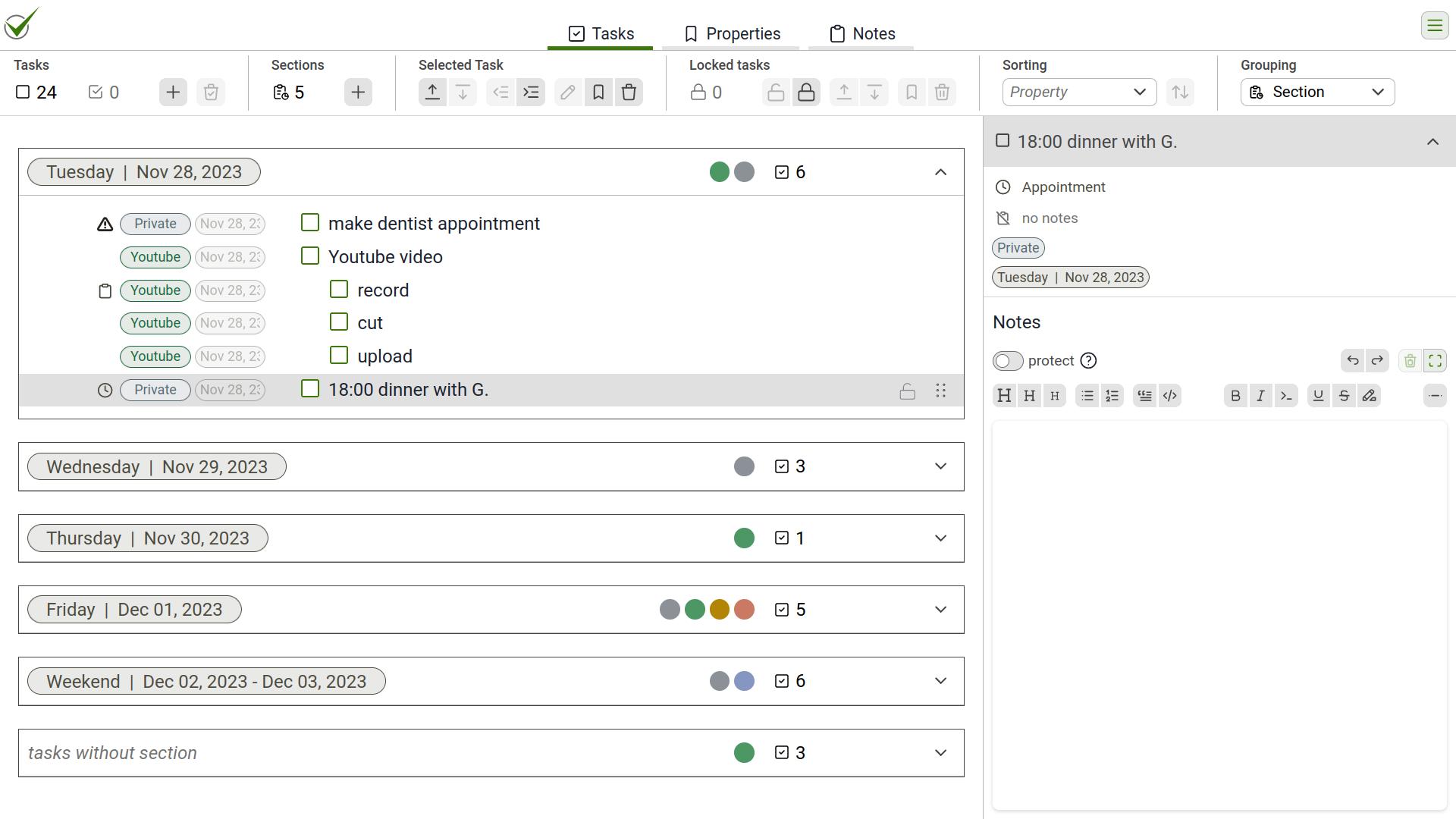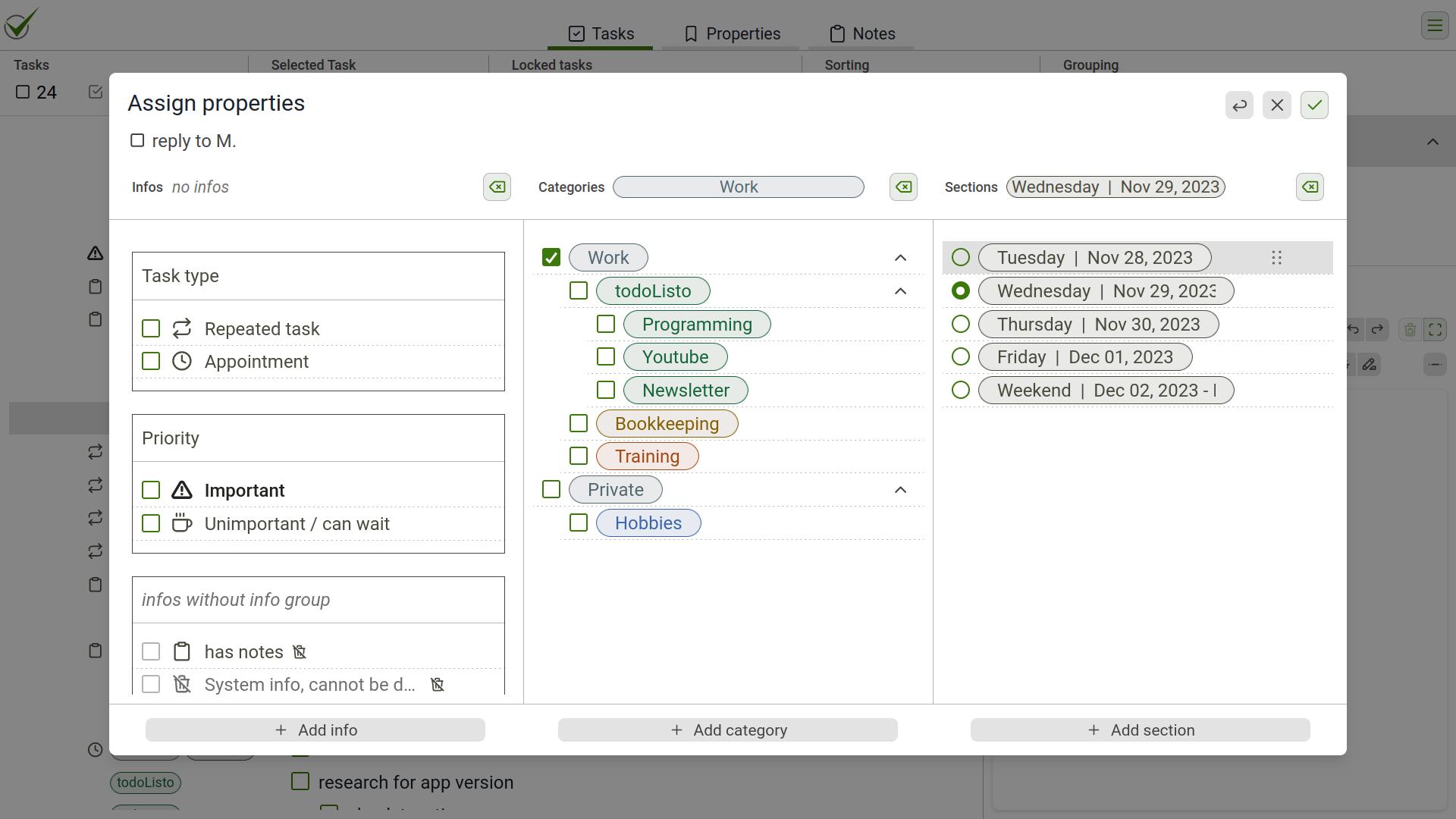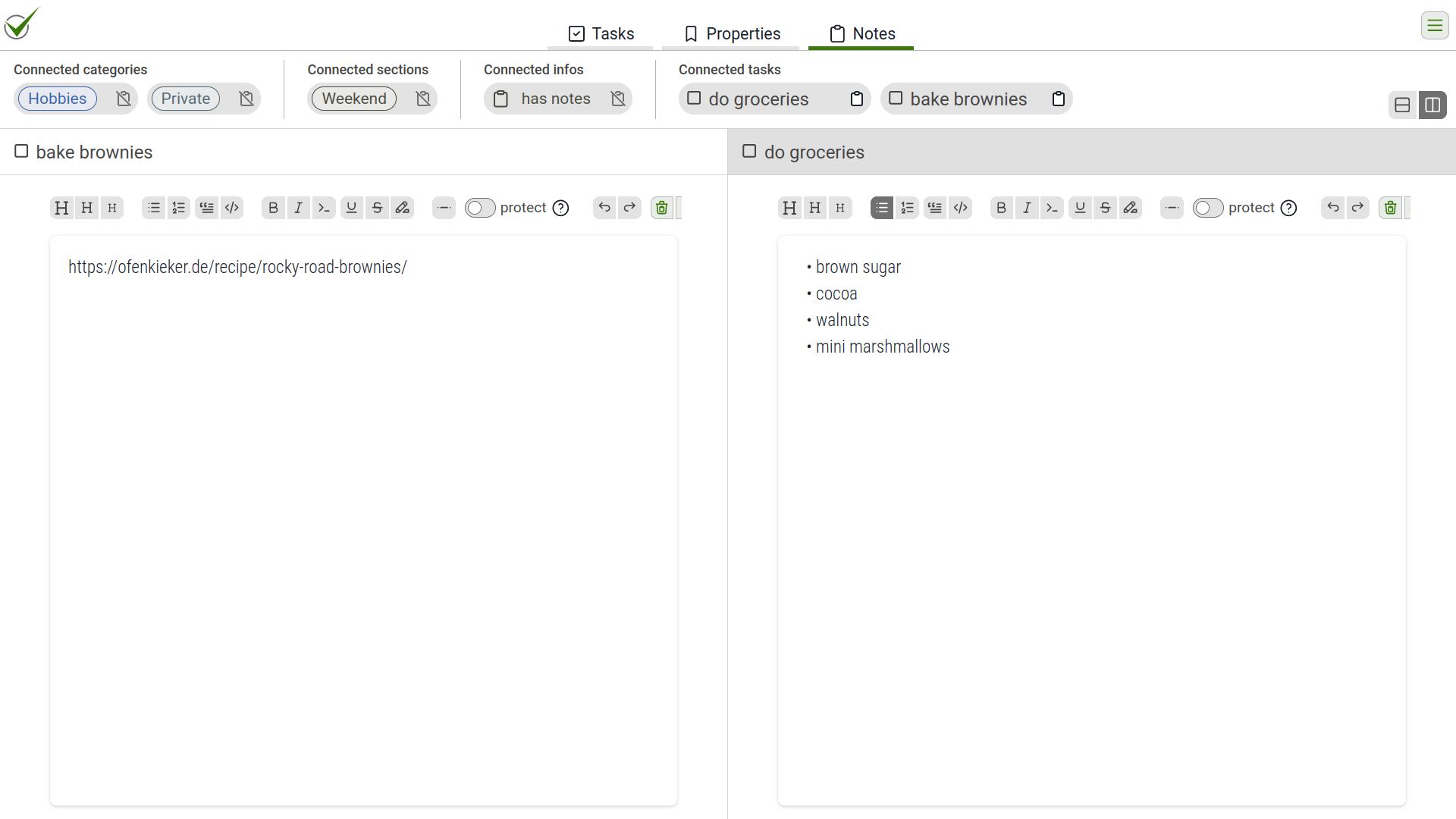How does thinking work? (How) can we instruct machines to think? And how can we use our knowledge to make machines more useful for people?
I am currently mostly pondering about the abililty of humans to make decisions in everyday life. I use results from psychology and behavioral economics to implement computational decision processes that resemble those of humans. The goal is not do much to get improve automatic responses, but more to better support human activities with computers.
Research Interests
Cognitive Systems
Decision-Making
Human-Centered AI
Projects
since 2021todoListo: Your personal task management tool
at Alex Kirsch IT GmbHPrototypingUser Experience DesignClojureClojureScriptReactKeycloak
todoListo: Your personal task management tool
2021 – 2023Transformation consulting and support for an online publisher of medical knowledge
ConsultingUser Experience DesignBusiness analysisRequirements AnalysisWorkshopsPrototypingClojureScriptJavaScriptReact
Transformation consulting and support for an online publisher of medical knowledge
The 10-year-old company has been very successful with quick innovations in its online products. By focusing on innovation, technical debt has been accumulated both on a conceptual and on an architectural level, which led to declining innovative power. In this project, interal software tools are to be reconceptualized and reimplemented, while ensuring that day-to-day business is not impaired. Ideally, new functionality that directly improve the end user product, should be added in the course of the transformation process.
- Analysis and illustration of hitherto existing system functionality and shortcomings
- Preparation and presentation of information for management to argue the need for the transformation
- Information and onboarding of different stakeholders (end users, developers, product designers)
- Planning of intermediate goals and project steps
- User experience research
- Research of central libraries
- Functional prototyping of a web frontend
Feedback I received from project collaborators:
- very structured and well prepared for meetings
- an iterative approach that can deal with uncertainty and gets closer to a clear picture on every iteration
- great presenter of results and insights
- inspiring with new angles on old issues
- not only capable on a concept level but also a quick prototyper
- great user-centric end-to-end thinking
2012 – 2018Human-Centered Artificial Intelligence
Young Scholar's Programme of the Bavarian Academy of Sciences and HumanitiesDecision processesCognitionAutonomous robotsClojureJavaFX
Human-Centered Artificial Intelligence
Human-Centered Artificial Intelligence is an interdisciplinary effort to use artificial intelligence as a tool for better human-robot (or more generally human-computer) interaction. It comprises user-centered development of the functionality of technical systems, while at the same time using inspiration from biological systems to make technology more robust for real-world applications.




Wissenschaft ist ein iterativer Prozess von Beobachten und Theoriebildung. Genau so habe ich meinen Algorithmus entwickelt und genau so kann er für konkrete Fragestellungen genutzt werden. Durch das Protoyping von Anwendungsfällen bekommt man schnell ein Gefühl dafür was gut funktioniert und wo Verbesserungsbedarf besteht.
In dem Ansatz geht es nicht darum, eine Speziallösung für ein spezifisches Problem zu entwickeln, sondern einen allgemeinen Mechanismus, der auf viele verschiedene Aufgabenstellungen übertragbar ist. Deshalb ist das Verfahren an zwei sehr unterschiedlichen Aufgaben entwickelt worden: dem Traveling Salesperson Problem (einem Problem aus der theoretischen Informatik, das in vielen realen Aufgaben in abgewandelter Form vorkommt) und der Navigation von autonomen Robotern (d.h. der Roboter hat die Aufgabe einen Zielpunkt zu erreichen und muss dafür den nächsten Befehl an seine Räder schicken).

Das Verfahren eignet sich vor allem für Beinahe-Optimierungsprobleme
, also Aufgaben, die sich nicht vollständig formalisieren lassen, die jedoch zu unübersichtlich sind um von Menschen ohne technische Unterstützung gelöst zu werden, z.B.
- Erstellung von Produktionsplänen
- Kategorisierung von Produktgruppen
- Planung von Verkaufsniederlassungen
- Bildung von (Kunden-)Kohorten
- Wartung komplexer IT-Systeme
Im Gegensatz zu klassischen Optimierungsverfahren zeichnet sich mein Ansatz aus durch
- hohe Nutzerakzeptanz
- Robustheit
- Verständlichkeit



